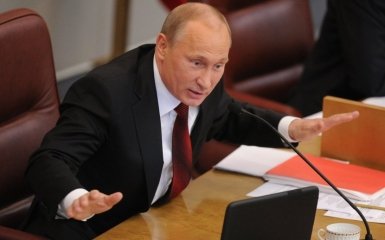The current strategy of the Russian dictator Vladimir Putin is to drag out the war, with the expectation that his army will be able to win by exhausting the armed forces. However, this plan may fail.
Points of attention
- Putin's plan to deplete the Armed Forces of Ukraine prolongs the war, but may lead to defeat due to the exhaustion of Russian forces.
- Russia's limited military resources threaten its ability to conduct sustained offensive operations.
- The Russian military-industrial complex has problems with the preservation of military equipment, which can affect the success of the strategy in prolonging the conflict.
- Putin is trying to avoid a new mobilization, but under pressure he may be forced to do so, indicating an imbalance in Russian resources.
- Russia's international cooperation with other countries to purchase weapons does not compensate for the shortage of military equipment and components in the war against Ukraine.
Russian troops will eventually tire of Putin's strategy
According to ISW analysts, Putin and the Russian command have been forcing their army to conduct offensive actions along the front line in the east and northeast of Ukraine during the year. These operations are intended to exhaust the Armed Forces of Ukraine and prevent them from accumulating resources for a counteroffensive.
It is also reported that Russian troops are trying to neutralize the threat from the Armed Forces of Ukraine in the Kursk region and at the same time continue to press on the east of Ukraine, pursuing old operational targets.
ISW analysts note that the active offensive operation of Russian troops in the summer of 2024, aimed at capturing Pokrovsk and reducing the Ukrainian presence in the Donetsk region, will probably reach its peak in the coming months.
Despite this, the Russian command will most likely continue to support offensive efforts to maintain the initiative and exhaust Ukrainian forces until this point.
Putin's theory of victory is based on continuous offensive actions. However, such operations can exhaust the Russian troops so much that they will be forced to reduce the pace of advance in certain areas of the front, which will allow the Armed Forces of Ukraine to seize the initiative," the report says.
Russia will have problems with military equipment
Analysts also note that medium- and long-term limitations on Russia's military resources and industrial potential will undermine its ability to conduct sustained offensive operations aimed at prolonging the war.
ISW observes a steady increase in financial incentives for contractors in the Russian army, which indicates the depletion of volunteer reserves. At the same time, Putin seeks to avoid a new wave of partial mobilization, similar to the fall of 2022, but may resort to this under strong pressure.
Russian losses of equipment, especially armored vehicles, are significant, and the military-industrial complex will not be able to quickly replace these losses. Russia relies on old Soviet stocks of equipment, which are rapidly depleting, ISW reports.
At the same time, Russia cooperates with North Korea, Iran and China to purchase weapons and critical components, but these international supplies are not enough to meet the needs of the war against Ukraine.




